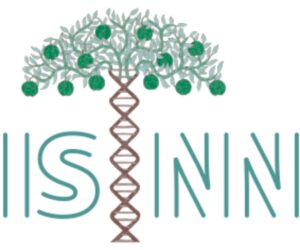The International Society of Nutrigenetics & Nutrigenomics (ISNN)
16th International Congress: Precision Nutrition in Obesity
Established in 2005, the International Society of Nutrigenetics & Nutrigenomics (ISNN) seeks to increase the understanding of the role of genetic variation and dietary response and the role of nutrients in gene expression. Join ISNN October 13-14, 2023 in-person in Dallas, Texas, for the 16th Annual Scientific Congress, immediately before ObesityWeek.
REGISTER FOR THE CONGRESS IN THE OBESITYWEEK REGISTRATION SYSTEM.

Friday, October 13, 2023

2:00 pm – 3:00 pm
Jose Ordovas, PhD
Senior Scientist, Nutrition and Genomics Team
Professor, Nutrition and Genetics
Tufts University
José M. Ordovás, PhD, is Professor of Nutrition and a Senior Scientist at the USDA-Human Nutrition Research Center on Aging at Tufts University in Boston, Massachusetts where he also is the Director of the Precision Nutrition Directive. In addition, he is Professor of Genetics and Pharmacology at the School of Biomedical Sciences and Leader of the Nutritional Genomics and Epigenomics Group at IMDEA Food in Madrid, Spain. After receiving his PhD in biochemistry at the University of Zaragoza in Spain, Dr. Ordovas completed postdoctoral work at MIT, Harvard, and Tufts University. His primary research interests focus on the genetic and epigenetic factors predisposing to age-related chronic diseases (i.e., cardiovascular disease, obesity, and diabetes) and their interaction with environmental and behavioral factors with particular emphasis on diet. He is considered one of the most distinguished world experts in gene-diet interactions pertaining to cardiometabolic traits. Dr Ordovas has published over 900 scientific articles in peer review journals. He has a h-index >130 and has trained over 60 scientists in his laboratory. Throughout his career, Dr. Ordovas received multiple honors for his scientific achievements. Dr. Ordovas has been a member of the Food and Nutrition Board of the National Academies and the FDA National Toxicology Center Advisory Committee, and he currently serves on multiple national and international steering committees, scientific peer review committees, advisory and editorial boards.
Opening Ceremony & Lecture on Precision Chrononutrition: Addressing Obesity and Related Disorders Across the Lifespan
Obesity, a global public health challenge, is influenced by various factors including genetics, diet, and lifestyle. Precision nutrition, which tailors dietary recommendations to individual needs, is gaining attention for its potential to tackle obesity. This talk will address the emerging importance of precision chrononutrition – the timing of nutrition intake based on circadian rhythms, seasonal effects, and life stages. To provide a comprehensive understanding of current knowledge in precision chrononutrition, highlight its implications for obesity and associated disorders, and underscore research gaps warranting further exploration. We will review established literature on chrononutrition and its effects on obesity, focusing on circadian disruptions, especially among the elderly population. The presentation will also consider the impact of seasonal variances and life stages on metabolic outcomes. Current evidence suggests that chrononutrition, when personalized to an individual’s genetic makeup, circadian rhythms, and life stage, can optimize metabolic functions and potentially mitigate obesity risk. Chronodysruption, especially among the elderly, exacerbates metabolic disorders, emphasizing the need for targeted interventions in this demographic. Beyond traditional gene-diet interactions, recognizing broader determinants of health such as socioeconomic and mental well-being factors is crucial. Addressing these in tandem with chrononutrition can offer a more holistic approach to managing obesity. Precision chrononutrition offers a promising avenue for obesity management. Future research should expand beyond traditional perspectives, incorporating wider health determinants to provide comprehensive and effective solutions.
Session 1: Nutrition for Precision Health (NPH) Initiative

3:15 pm – 3:45 pm
Leanne Redman, PhD, FTOS
Professor
Pennington Biomedical Research Center
Dr. Leanne Redman is a Professor of Clinical Sciences and an Associate Executive Director at Pennington Biomedical Research Center. Redman is a leading authority on obesity and metabolism and has published more than 200 research papers on these topics as well as nutrition and exercise. She has won national awards in recognition of her mentoring and is the 2023 recipient of The Obesity Society Taking off Pounds Sensibly award for her work in maternal obesity. Late in 2021, Redman led a team of scientists from Pennington Biomedical and LSU Health Sciences Center to develop a clinical center on Precision Nutrition. The grant was awarded and Redman has led the national Nutrition for Precision Health consortium as the Steering Committee Co-Chair. A $170M initiative of the National Institutes of Health, the Nutrition for Precision Health research study powered by All of Us is designed to develop algorithms that predict individual responses to foods and dietary patterns.
An Introduction to the Nutrition for Precision Health Research Consortium
Nutrition is at the epicenter of human health and disease. However, our current “one size fits all” approach to clinical nutrition is failing a large segment of the population. Individual factors including genetics, metabolism, physiology, microbiome, behavior, the built and contextual environment all underlie the inherent variability in response to diets. Exciting new research shows that machine learning algorithms can integrate this complex information and predict how someone responds to a given diet. If validated, this innovative approach will provide a radical change in the delivery of personalized nutrition prescriptions to promote health and treat chronic diseases in all people. The goal of the Nutrition for Precision Health (NPH) research study is to study a large and diverse group of American adults and to use machine learning and artificial intelligence models to understand the individual responses to foods and dietary patterns. NPH is the first ancillary study of the All of Us Research Program. The consortium was formed January 2022 and plans to enroll approximately 10,000 participants into the NPH study. Using a discovery science approach study participants will enroll in either one or two modules; Module 1: a cross-sectional study to characterize daily dietary intake and accompanying nutritional status, biological and other measures over 10 days, as well as physiological responses following a liquid mixed meal tolerance test; Module 2 a crossover randomized study of three 14-day dietary interventions implemented in a community dwelling setting; Module 3 a crossover randomized study of the same three dietary interventions as in Module 2, implemented in a domiciled setting. Participants in these three Modules will contribute simultaneous, multimodal measurements (e.g., dietary assessment, anthropometric, physiological, behavioral, social, and contextual measurements) carefully selected for their relevance to understanding responses to foods, including nutrients, food components, and dietary patterns. The rich set of data and biospecimens will be used to inform paradigm shifting approaches that enable large-scale delivery of personalized dietary prescriptions to promote general health, delay cardiometabolic diseases, and importantly address health disparities.

3:45 pm – 4:15 pm
Eric Ravussin, PhD, FTOS
Associate Executive Director Clinical Sciences
Douglas L. Gordon Chair in Diabetes and Metabolism
Director, Nutrition Obesity Research Center
Pennington Biomedical Research Center-LSU System
Dr. Eric Ravussin is a Boyd Professor at Louisiana State University. He received his PhD in human physiology at the University of Lausanne, Switzerland. Dr. Ravussin is an internationally recognized translational investigator in obesity and diabetes research. His research now focuses on the molecular basis of obesity and its co-morbidities. His studies are aimed at understanding the molecular mechanisms that determine the inter-individual variability in energy expenditure, fat oxidation and energy balance in response to caloric restriction, increased or decreased physical activity, overfeeding or physiological conditions such as puberty, pregnancy, or menopause as well as pharmacological treatment. His latest research is in the field of aging with an emphasis on the impact of caloric restriction on human biomarkers of aging and longevity. Dr. Ravussin has published more than 700 peer reviewed manuscripts in the field of obesity, type 2 diabetes, and aging. He has an h index of >115 and has mentored more than 60 postdoctoral fellows. Dr. Ravussin has been the recipient of multiple awards and just ended his 10-y commitment as Editor in Chief of Obesity since 2012.
Nutrition for Precision Health: Clinical Protocols and Studies
Nutrition for Precision Health (NPH) is the first ancillary study of the All of Us Research Program. We plan to enroll approximately 10,000 participants into the NPH study. NPH is discovery science research involving modular components, including:
■ Module 1 is a cross-sectional study of approximately 10,000 individuals enrolled in the All of Us Research Program to characterize their daily dietary intake and accompanying nutritional status, biological and other measures measured over approximately 8 to 14 days, as well as physiological responses following a liquid mixed meal tolerance test.
■ Module 2 is a crossover design randomized study of three dietary interventions implemented in a community dwelling setting. This module will enroll approximately 1,500 individuals who have completed Module 1. Participants will undergo three controlled dietary interventions provided for 14-days each, in a sequence determined by cohort randomization, and separated by washout periods. Physiological responses following a diet-specific mixed meal tolerance test will be measured.
■ Module 3 is a crossover design randomized study of the same three dietary interventions as in Module 2, implemented in a domiciled setting. This module will enroll approximately 500 individuals who have completed Module 1. Participation in Modules 2 and 3 will be mutually exclusive. Module 3 participants will be studied in residence and will undergo the three 14-day dietary interventions (as in Module 2), in a sequence determined by cohort randomization, with washout periods of at least 14 days. Physiological responses following a liquid mixed meal tolerance test and a diet-specific mixed meal tolerance test (on separate days) will be measured.
Within these modules, NPH will evaluate the use of novel dietary assessment measures to improve dietary assessments and to prescribe assessments to people in future research with increased precision.

4:15 pm – 5:00 pm
Saroja Voruganti, PhD
Associate Professor
University of North Carolina at Chapel Hill
Dr. Saroja Voruganti, PhD, is an Associate Professor in the Department of Nutrition and Associate Director for Clinical Research services in Nutrition Research Institute (NRI) at the University of North Carolina at Chapel Hill. She earned her Ph.D. in Nutrition from The University of Texas at Austin in 2005. She did her post-doctoral training in genetic epidemiology at Texas Biomedical Research Institute. Dr. Voruganti joined the faculty at NRI and Department of Nutrition at UNC Chapel Hill in 2013 and was promoted to Associate Professor in October 2019. Her research focuses on identifying genetic susceptibility to diseases such as obesity, diabetes and neurodegenerative diseases, effect of genetic variation on nutrient metabolism and the effect of nutrients on gene expression related to these diseases. She has extensively investigated the interplay between nutritional and genetic factors influencing disease risk in ethnically diverse populations, especially underrepresented populations such as Mexican American, American Indian, Alaska Native, Parsi Zoroastrian and Hispanic populations.
Participant Engagement and Return of Individual Results, followed by Q&A
Nutrition for Precision Health (NPH) study is a NIH Common Fund’s program powered by All Of Us Research Program. whose overall goal is to understand the variation in responses to various diets and the underlying role of genetics, epigenetics, microbiome and metabolism in this variation. The NPH study will generate vast amounts of metabolic and clinical data and results, and thus, recognizes that participants are key to the success of the study, and they have a long-term relationship with participants who are partners in these studies. This presentation will provide an overview of the value of returning general and individual results to participants, the risks and benefits of research results, and the role of increased community and continued participant engagement in a research study cycle.
Poster Presentations and Cocktails (cash bar) 5:00 pm – 7:00 pm
Saturday, October 14, 2023
Session 2: Omics Tools for Application of Precision Nutrition to Obesity

8:30 am – 9:00 am
Brian Bennett, PhD
Research Leader, USDA ARS WHNRC
Associate Adjunct Professor
University of California Davis
Brian J. Bennett, PhD, is the Research Leader of the Obesity and Metabolism Unit at the USDA’s Western Human Nutrition Research Center and an Associate Adjunct Professor of Nutrition at the University of California, Davis. His laboratory study’s nutritional genomics, an emerging field that seeks to determine how inter-individual variation and diet interact to affect health status and disease susceptibility. Brian has extensively researched the genetic susceptibility to cardiovascular disease and obesity, how metabolism responds to genetic perturbations and how diet and genetic architecture interact to affect gene expression. A specific interest of Brian’s is understanding the role of a gut microbiota derived metabolite (TMAO) which appears to change with diet and is predictive of cardiovascular disease in humans. To better understand the biology of TMAO, Brian has used a variety of approaches including studies utilizing mice advanced genetic reference panels and small cohorts of humans.
Intra-Individual Response to Diet: Impact of Microbiota and Host Genetics on Metabolic Health

9:00 am – 9:30 am
Bradley Ferguson, PhD
Associate Professor
University of Nevada, Reno
Brad received his undergraduate degree from Appalachian State University and then moved to the University of North Carolina at Greensboro for his Masters in Exercise Science and PhD in Cellular and Molecular Nutrition. Brad then moved to Colorado to postdoc with Dr. Tim McKinsey in the Division of Cardiology, before starting his own lab at the University of Nevada Reno. Brad’s lab has received funding from the NIH, USDA, and NSF and his group is focused on understanding how protein acetylation links metabolic disease to pathological cardiac remodeling and ultimately heart failure. The Ferguson lab uses an integrative, translational research approach that encompasses bioinformatics, in vitro cell culture, and in vivo animal models to: 1) understand how protein acetylation of sarcomeric proteins links metabolic diseases such as obesity and diabetes to cardiac contractile dysfunction. 2) Delineate the enzymes responsible for acetylating and/or deacetylating proteins in response to obesity. 3) Elucidate dietary food components that act as regulators of protein acetylation/deacetylation as well as elucidate a role for dietary protein acetyl modifiers on pathological cardiac signaling, gene expression, and remodeling.
Role of Dietary Epigenetic Modifiers in Regulating Cardiac Dysfunction
Histone acetylation is an important epigenetic modification that controls pathological cardiac hypertrophy (enlargement), fibrosis (scarring) and heart failure (HF). Over the last several years, our lab and others have shown that histone deacetylase (HDAC) inhibition attenuated cardiac hypertrophy and fibrosis that contributed to improved cardiac function. Recent interest in our lab has further shown that food bioactives can serve as HDAC inhibitors to ameliorate pathological cardiac hypertrophy. Indeed, we report that emodin, an antraquinone, serves as an HDAC inhibitor that normalized global changes in gene expression in stress-induced cardiac myocytes as well as attenuated pathological cardiac hypertrophy and fibrosis in hypertensive male and female mice. However, recent reports show that gut bacteria and the liver often metabolize parent compounds, and thus few parent compounds reach their intended target tissues, e.g. the heart following oral consumption. Thus, it has become critical that new research studies focus on understanding how food bioactives interact with the microbiome in diseased and healthy states, as well as identify metabolites that affect epigenetic signatures in target tissues. Indeed, reports demonstrate changes in the gut microbiome and circulating metabolites in response to hypertension. We report that emodin increased the abundance of cardioprotective bacteria (e.g. Akkermansia) in hypertensive mice, and rapidly (within 3 days) decreased microbial diversity, while increasing the abundance of cardioprotective bacteria specifically in the colon (e.g. Akkermansia) as well as health-promoting bacteria (e.g. Roseburia) throughout the gut. Future work will need to establish if parent compounds directly drive bacterial growth or indirectly affect mucus production and pH regulation for healthy bacterial growth, or if food bioactive metabolites elicit these affects. In addition, future work will need to investigate the link between food bioactives and the microbiome-epigenome axis in CVDs. However, these data show that microbial changes occur rapidly with cardioprotective food bioactives and that these compounds can improve bacterial abundance of known cardioprotective species in both healthy and hypertensive mice.

9:30 am – 10:00 am
Diana Thomas, PhD, FTOS
Professor of Mathematics
US Military Academy West Point
Diana M. Thomas received her Ph.D. from the Georgia Institute of Technology in 1996. She then completed a National Research Council funded post-doctoral fellowship at the United States Military Academy and the Army Research Laboratory. In 2000, she joined the faculty of the Montclair State University where she was a professor of mathematics and the director of the Montclair State University Center for Quantitative Obesity Research. Dr. Thomas is currently a professor of mathematical sciences at the United States Military Academy at West Point.
Dr. Thomas has been an active research mathematician for over 25 years with a focus on nutrition and obesity related modeling. She has worked with large complex and high dimensional datasets and co-invented the remote weight loss program, SmartLoss™, which has been clinically applied world-wide to guide and improve individual patient weight loss adherence through smartphone technology. Dr. Thomas has published over 150 peer-reviewed articles and has led the development of over 10 freely accessible health calculators. She is an associate editor for the world’s top ranked journal for original research in nutrition, the American Journal of Clinical Nutrition and co-edits the series “Best (but oft-forgotten) practices”, which consists of methodologic commentaries or statistical tutorials. She also serves as an editor for Nutrition and Diabetes and the European Journal of Clinical Nutrition. Dr. Thomas is currently the PI of the Artificial Intelligence, Data Engineering & Machine Learning (AIDE-ML) Center for the Nutrition for Precision Health Consortium which she serves as a co-chair for the Steering Committee. She has held governance positions in the Obesity Society, the American Society of Nutrition, and the Mathematical Association of America. Dr. Thomas holds the 2012 Mathematical Association of American of NJ Distinguished Teaching Award, the 2015 Obesity Society George Bray Founder’s Award, and the 2023 American Mathematical Society Mary P. Dolciani Prize for Excellence in Research.
Machine Learning in Nutrition Research

10:00 am – 10:30 am
Noa Rappaport, PhD
Principal Scientist
Institute for Systems Biology
Dr. Noa Rappaport is a Principal Scientist at the Institute for Systems Biology, where she spearheads a research agenda in computational biology and multiomic analysis as part of the Hood-Price lab for Systems Biomedicine. She earned her Ph.D. from the Weizmann Institute of Science, during which she engaged in mathematical modeling of biological systems and later on led the development of widely used biological databases. Currently, her research focuses on the application of multi-omic data analysis and machine learning to uncover new biological insights. Her areas of interest include aging, cancer, Alzheimer’s disease, microbiome health, and metabolic health.
Capturing Phenotypic Heterogeneity of Metabolic Health using Multiomics-Based Blood Measures
Multiomic profiling provides a comprehensive measurement of molecular features in biological samples, which allows for a deeper understanding of the complex interplay between genetics, environment, and lifestyle factors in metabolic health. This talk will describe a study that developed machine learning models of BMI by integrating multiomic data from deeply profiled human cohorts (Arivale and TwinsUK). The results demonstrate that omics-based measures can capture personalized deviations from the expected average relationships, leading to better phenotypic heterogeneity of metabolic health in all aspects tested. Additionally, participants with metabolically unhealthy phenotypes showed greater improvements in health in response to a personalized lifestyle coaching intervention, even preceding weight loss itself. Multiomic profiling offers a promising paradigm for quantifying metabolic health and developing holistic measures of health beyond traditional metrics, which can lead to better disease risk prediction and monitoring of therapeutic and lifestyle interventions as measurement costs decrease.
